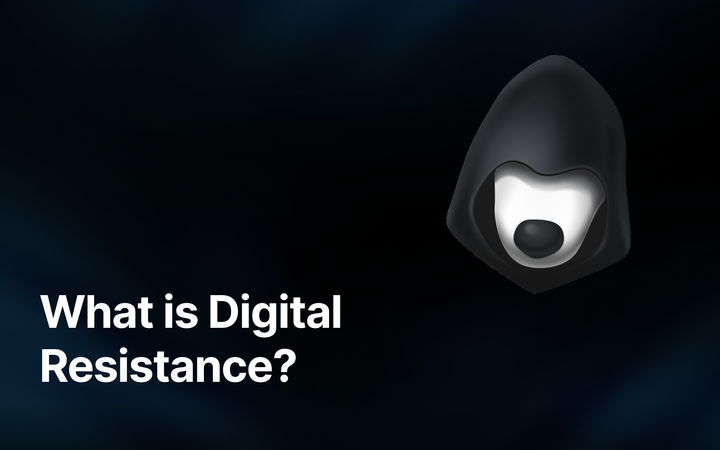How to Avoid Cryptocurrency Fraud: Tips for Beginners

The problem of fraud in the cryptocurrency sector is only intensifying each year, as the popularity and value of cryptocurrencies grow, attracting not only investors but also scammers. Let's identify the main factors why fraud in the cryptocurrency market is so widespread.
Firstly, many countries lack a regulatory system for cryptocurrencies. This area falls into a so-called "gray zone," which creates favorable conditions for fraudsters. This can also be attributed to the anonymity and pseudo-anonymity that the cryptocurrency market can offer its users. Various platforms and wallets with a high level of anonymity can be used for money laundering or financing other illegal activities. In these conditions, fraudsters very easily remain unpunished. Also, even in countries where there is regulation of cryptocurrency markets, legal prosecution is complicated by the international access to cryptocurrencies.
Secondly, the topic of cryptocurrencies is still little known to many people. The complexity of the technology, which not everyone can understand immediately, allows scammers to easily deceive and confuse newcomers to crypto, using various scam schemes. A lack of understanding of how DeFi works can lead to novice investors not realizing the risks and not understanding the importance of various security measures.
Thirdly, the psychology of greed. The desire to make quick and easy money and the fear of missing out on profits make people less prone to careful analysis, prompting them to make rash decisions. Scammers widely exploit the emotions of potential victims and their desire to make money quickly.
All this is exacerbated by the fact that blockchain transactions are irreversible. It is not possible to recover lost funds without the recipient's consent.
Let's take a closer look at the most common types of fraud in the cryptocurrency sector, including phishing, scam projects, and market manipulations.
Undoubtedly, the most common type of fraud is phishing, which aims to gain access to confidential information, such as logins, passwords, and keys.
In phishing, scammers may use various methods to steal your personal information, for example, they create fake websites, apps, and wallets that look almost identical to the real ones. By entering your credentials when logging in on such a fake platform, you pass them to the scammers.
In addition, scammers send emails to victims that appear to be sent from a cryptocurrency exchange, company, or support. These messages may contain links leading to fake websites or urge you to provide access to personal data. Malicious actors may also write you personal messages on various social networks. Any message from a stranger who supposedly tries to help you make money can confidently be considered a scam.
Some scammers may use malicious software that infects victims' devices and steals passwords and access to wallets, like keyloggers. You might not notice that the wallet address you copied has changed when pasting, so it's important to check the entire address each time, not just the beginning and end.
Various scam projects are very common, such as financial pyramids and Ponzi schemes. These schemes promise investors large payouts with minimal risks, but in reality, payments to new investors are made at the expense of funds invested by previous participants. The difference between them is that in a Ponzi scheme, usually services for managing investments are presented, where participants think they are receiving income as a result of real investments, but the scammer simply takes money from some to pay others, and in a pyramid scheme, new participants need to attract new members to earn, and each participant takes a portion of the funds before passing them up the pyramid.
Also, a serious threat to investors is fraud with cloud mining. In such schemes, investors are offered the opportunity to invest their funds in cryptocurrency mining without purchasing and installing expensive equipment to receive a part of the profit, but instead of mining coins, scammers just collect money from victims.
Fake ICOs are another problem in the cryptocurrency industry, where scammers create a website and detailed "white paper," actively promote their project through various sources, and after receiving significant sums from investors, simply disappear.
In addition to this, there are schemes like "pump and dump," where a group of scammers artificially increases the price of an asset. They attract investors through mass advertising on social networks, forums, chats, other sources, and even Telegram channels with news about crypto. A good price increase attracts more and more investors, but when the asset's price peaks, the organizers of such a "project" sell their shares, making a significant profit, while new investors suffer losses as the price inevitably falls.
Let's highlight the main signs of scam projects to be able to recognize them
- Lack of clarity or complete absence of information about the project team, their experience with other projects;
- Absence of a real product, lack of project details or its technical documentation;
- Unrealistic promises of high and quick returns with minimal risks;
- Pressure for quick investments;
- Negative reviews or lack of discussions about projects in reliable sources.
Another type of fraud involves market manipulations.
For example, spoofing - creating by a trader large orders to buy or sell that they do not intend to execute. This raises demand or supply for a certain currency, leading to price spikes, misleading other traders. As soon as the asset's price starts moving in the direction desired by the spoofer, they cancel their orders and realize a profit on the price movement they created.
Another example is wash trading, where a trader or a whole group of traders engage in buying and selling the same asset at the same or very close prices between their accounts. These actions lead to an increase in trading volume, which investors perceive as increased interest in a particular cryptocurrency.
Among market manipulations in the cryptocurrency market, front-running can also be distinguished - when a trader uses knowledge of upcoming transactions (obtained through informal channels or thanks to access to information on cryptocurrency exchanges, where they may work or have connections, as well as through algorithmic trading bots) to make trades before these transactions are executed to profit.
How can you protect yourself from scammers?
Security basics:
- Use long and complex passwords, come up with unique passwords for different sites and services;
- Activate two-factor authentication (2FA) on all your accounts, which can save your funds even if scammers learn your password;
- For a more reliable method of protecting your assets, use cold wallets. They are not connected to the Internet, so they are resistant to online attacks by scammers;
- Regularly update software and antivirus programs;
- For large transactions with strangers, you may use escrow services;
- Diversify your investments.
Check and double-check:
- Do not follow suspicious links and always check website URLs.
- Do not enter your personal data on suspicious sites.
- Use only verified and reliable platforms and apps.
- Choose wallets and exchanges with a good reputation.
Follow cryptocurrency news and study information.
The more you know about cryptocurrencies and everything related to them, the less chance scammers have to deceive you, so always strive to increase your literacy in this field.
Be skeptical and cautious.
If an offer seems too good to be true, it probably is, so be extremely careful. Due to the high risks, you need to be very careful, thoroughly checking every step, so you can significantly reduce the risk of encountering fraud.
Conclusion
Combating the problem of fraud in the cryptocurrency market can be effective only with a comprehensive approach, starting from educational programs to raise user awareness to strengthening international cooperation and legislative work.








